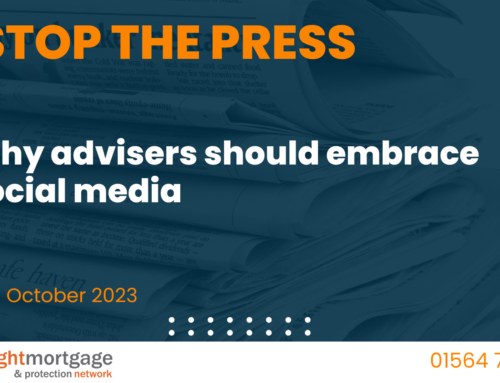Over the years I have sat with many brokers, given countless talks and attended numerous roundtables and events to discuss the valuable trail incomes that can be made if brokers embrace general insurance. I have outlined how easy it is to secure a lucrative, regular income stream that could supplement your business at times when mortgage business is perhaps not forthcoming. I have used case studies and diagrams and pretty smart PowerPoint presentations.
Yet, I don’t think any of it has had such an impact as one piece of information I revealed recently. One figure. £97,651.20. That’s how much money brokers are losing out on over five years, if they sell three mortgages a week and don’t sell GI alongside them. Almost £100,000. It’s shocking isn’t it? Who could honestly say they’re happy to give up the best part of £100,000 rather than take the small amount of time needed to add GI to their offering?
However, as shocking as this figure is, what is even more shocking – or perhaps worrying is a better word – is the risks advisers are taking from a compliance and regulation point of view is neglecting a customer’s GI needs.
Uinsure recently held a roundtable with key figureheads in the intermediary market to discuss the protection gap that continues to plague the industry. What was clear from the discussion that ensued was that by ignoring GI brokers are not only damaging their profits but also potentially risking the wrath of the regulator and flouting their duty of care.
The Financial Conduct Authority makes it clear that all advisers must focus on customer outcome. Brokers must ensure that the customer receives the right solutions for their needs. This means that holistic advice solutions are crucial. Arranging a mortgage but ignoring the client’s protection needs is not acceptable. It’s an incomplete job.
Over 70% of mortgages are written by the intermediary market yet only 25% of these have buildings and contents insurance sold alongside it. The figures don’t add up and the regulator will be taking note. Any failure to complete where the broker holds appropriate regulatory permissions is a potential breach of their regulatory responsibilities and also their duty of care to customer.
This also applies to Network AR’s . It becomes a compliance problem for any network principal if high mortgage volumes are completed but lack of GI penetration is evident.
I understand that in the past brokers may have felt that the effort required to sell GI was not commensurate with the reward but providers like Uinsure have worked hard in recent years on enhancing systems, prices and processes to ensure this is no longer the case. Furthermore, with the option to refer and still receive a commission there is very little reason for the broker to choose to eschew GI altogether. Indeed, if protection permissions are held and not used then there has to be the questions raised of whether de-authorisation of those permissions should occur.
At the very least, if general insurance is not going to be part of the intermediary’s sales process a disclaimer should be considered which the customer should sign in order to appease the regulator and satisfy your duty of care to some extent.
But it’s not just the regulator that will notice if you’re not addressing your clients GI needs – your competitors will be too. We all know this is a competitive industry and staying ahead of the competition is essential. Clients want to go to a broker who can offer them a full service approach, addressing all of their needs without having to look elsewhere. If you can’t give them everything they want and they’re forced to look to another firm for GI, will they come back to you when it’s time to remortgage? Will they recommend you to family or friends? Giving competitors the chance to cross sell to your client bank is a risky move.
If you can’t offer your customer everything they need they will go find someone who can. And risking losing your core mortgage business as well as any potential GI income stream? Well, that’s just plain self-sabotage.
I don’t know many brokers who would happily turn down £100,000 over five years – particularly when it involves little effort – but even if the monetary benefits of selling GI aren’t important to you, the compliance and regulatory requirements surrounding it should be.





